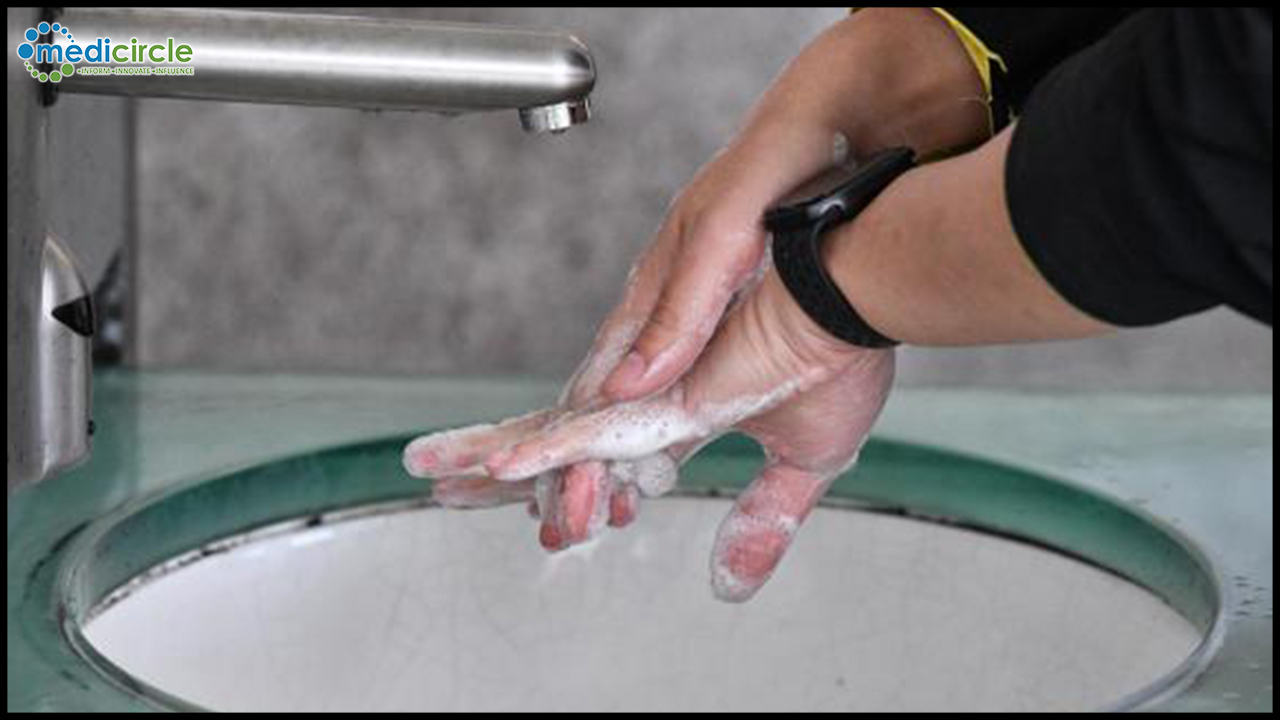Respiratory viruses like coronavirus disease (COVID-19) spread when mucus or droplets containing the virus get into your body through your eyes, nose or throat. Most often, this happens through your hands. Hands are also one of the most common ways that the virus spreads from one person to the next.
During a global pandemic, one of the cheapest, easiest, and most important ways to prevent the spread of a virus is to wash your hands frequently with soap and water.
Here’s everything you need to know about how to wash your hands the right way:
1. How do I wash my hands properly?
To eliminate all traces of the virus on your hands, a quick scrub and a rinse won’t cut it. Below is a step-by-step process for effective handwashing.
Step 1: Wet hands with running water
Step 2: Apply enough soap to cover wet hands
Step 3: Scrub all surfaces of the hands – including back of hands, between fingers and under nails – for at least 20 seconds.
Step 4: Rinse thoroughly with running water
Step 5: Dry hands with a clean cloth or single-use towel
2. How long should I wash my hands for?
You should wash your hands for at least 20-30 seconds. An easy way to time it is by singing the full happy birthday song, twice.
The same goes for hand sanitizer: use a sanitizer that contains at least 60% alcohol and rub it into your hands for at least 20 seconds to ensure full coverage.
3. When should I wash my hands?
In the context of COVID-19 prevention, you should make sure to wash your hands at the following times:
After blowing your nose, coughing or sneezing
After visiting a public space, including public transportation, markets and places of worship
After touching surfaces outside of the home, including money
Before, during and after caring for a sick person
Before and after eating
In general, you should always wash your hands at the following times:
After using the toilet
Before and after eating
After handling garbage
After touching animals and pets
After changing babies’ diapers or helping children use the toilet
When your hands are visibly dirty
4. How can I help my child wash his or her hands?
You can help children wash their hands by making handwashing easier for them, for instance, by setting up a stool so they can reach water and soap by themselves. You can make it fun for them by singing their favorite songs while you help them rub their hands.
5. Do I need to use warm water to wash my hands?
No, you can use any temperature of water to wash your hands. Cold water and warm water are equally effective at killing germs and viruses – as long as you use soap!
6. Do I need to dry my hands with a towel?
Germs spread more easily from wet skin than from dry skin, so drying your hands completely is an important step. Paper towels or clean cloths are the most effective way to remove germs without spreading them to other surfaces.
7. Which is better: washing your hands or using hand sanitizer?
In general, both handwashing with soap and water and hand sanitizer, when practiced/used correctly, are highly effective at killing most germs and pathogens. Hand sanitizer is often more convenient when you are outside of the home, but can be expensive or difficult to find in emergency contexts. Also, alcohol-based hand sanitizer kills the coronavirus, but it does not kill all kinds of bacteria and viruses. For example, it is relatively ineffective against the norovirus and rotavirus.
8. What if I don’t have soap?
Using chlorinated water or hand sanitizer that contains at least 60 per cent alcohol are the best second options if you do not have soap and running water. In cases where these are not available, using soapy water or ash may help remove bacteria, though not as effectively. If these methods are used, it is important to wash your hands as soon as possible when you do have access to handwashing facilities, and avoid contact with people and surfaces in the meantime.
9. How else can I help stop the spread of the coronavirus?
Use proper sneezing and coughing etiquette: Cover your mouth and nose with a flexed elbow or tissue when coughing or sneezing, dispose of used tissue immediately, and wash your hands
Avoid touching your face (mouth, nose, eyes)
Practice social distancing: Avoiding shaking hands, hugging or kissing people, sharing food, utensils, cups and towels
Avoid close contact with anyone who has cold or flu-like symptoms
Seek medical care early if you or your child has a fever, cough or difficulty breathing
Clean surfaces that might have come in touch with the virus, and generally clean surfaces more frequently (especially in public spaces)

 Unicef guidelines for proper hand washing may go a long way in preventing Covid19 infection
Unicef guidelines for proper hand washing may go a long way in preventing Covid19 infection






.jpeg)
.jpeg)
.jpeg)
.jpeg)
.jpeg)
.jpeg)
.jpeg)
.jpeg)






.jpeg)

.jpeg)
.jpeg)







.jpg)

